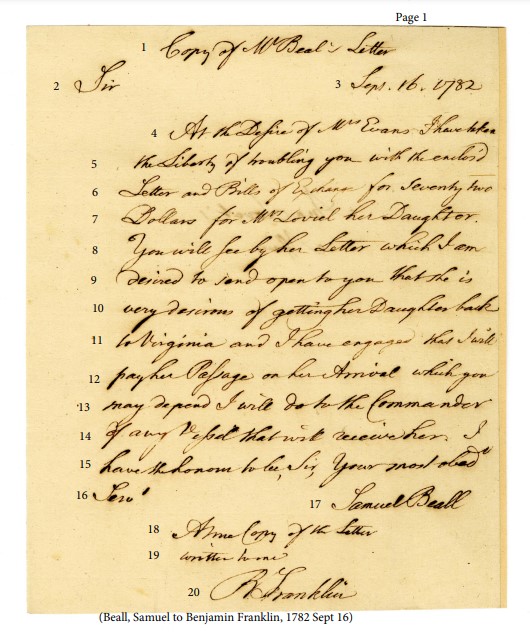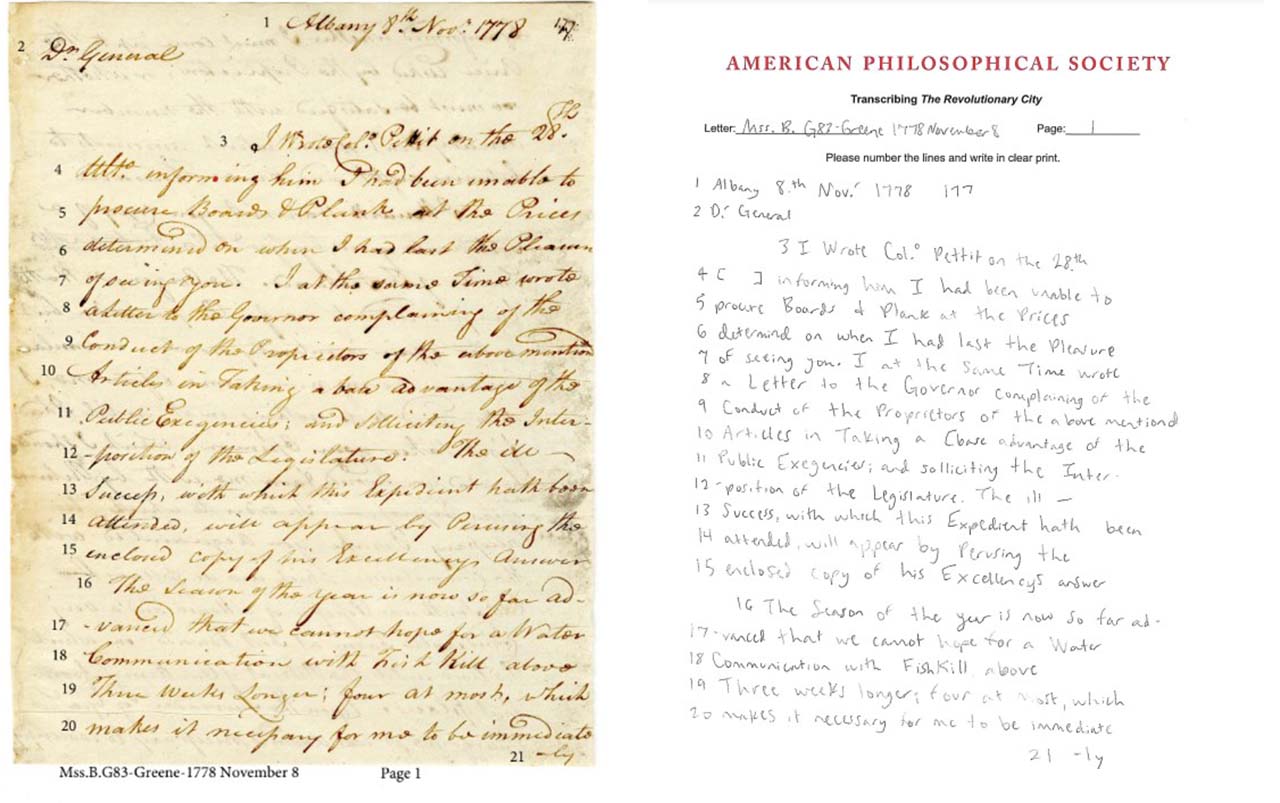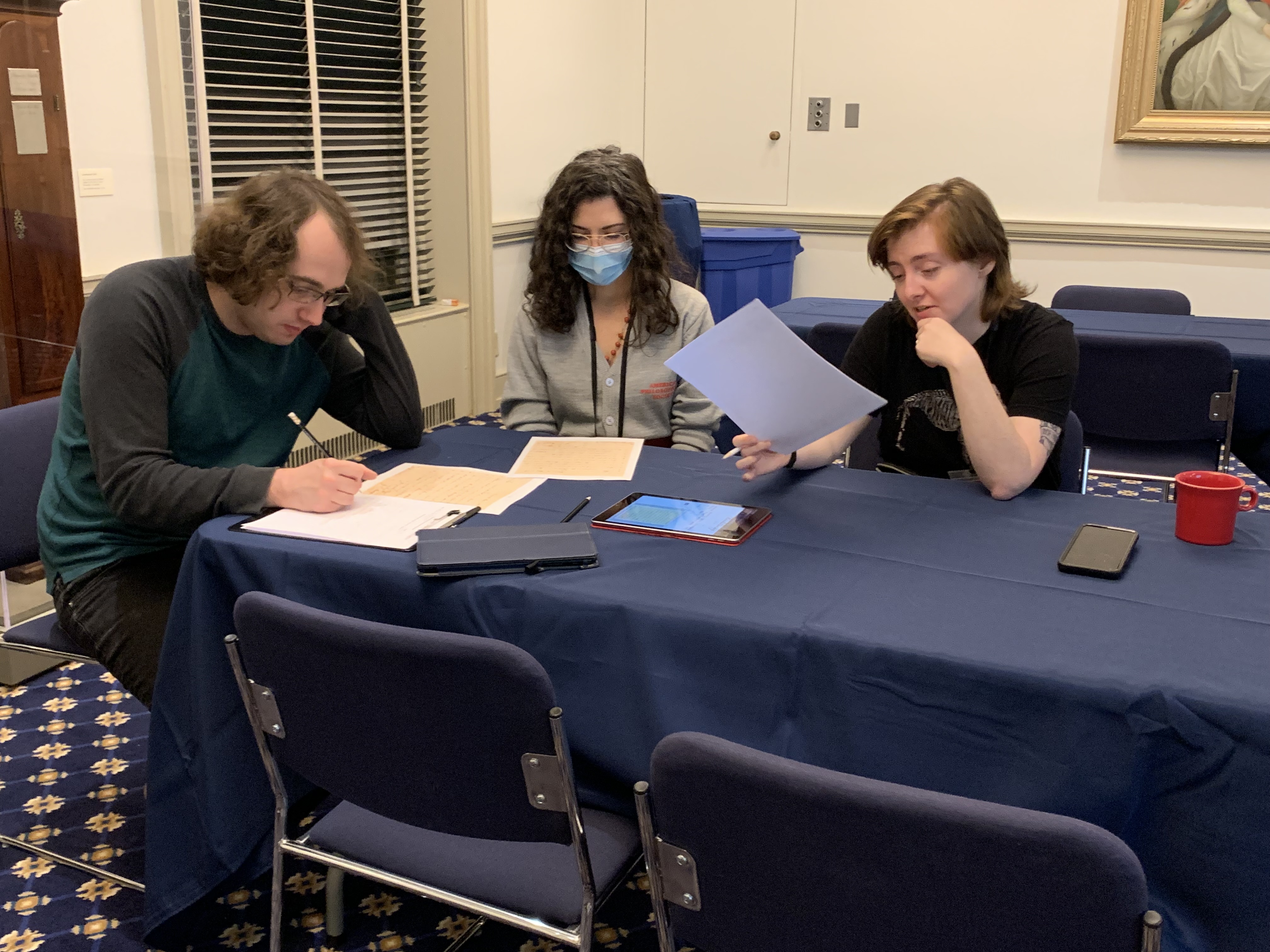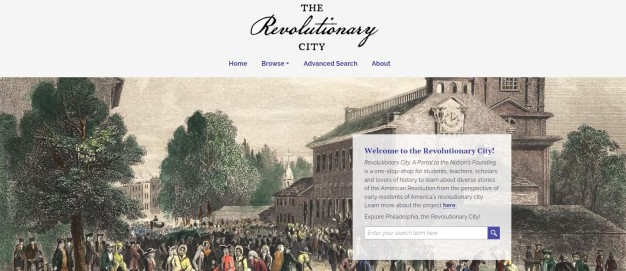Transcribing The Revolutionary City
Starting in October 2023, the American Philosophical Society (APS) began a transcription program to transcribe documents included in the digital portal, The Revolutionary City: A Portal to the Nation’s Founding. We continued the program this year in January and February, and after a small hiatus, will continue in May. Sometimes manuscripts can be inaccessible to people because the original writer’s handwriting is difficult to decipher. Transcription provides access to hard-to-read manuscripts, helping researchers at many levels investigate them. A clearer typed or handwritten version of these documents can make them much easier for all to read.
Don’t know about The Revolutionary City? The portal is a one-stop-shop for students, teachers, scholars, and history lovers to discover stories of the American Revolution from the perspective of early residents of America's revolutionary city, Philadelphia. The digital portal was created in partnership with the Historical Society of Pennsylvania (HSP) and the Library Company of Philadelphia (LCP). The APS and LCP, both founded by Benjamin Franklin, and the HSP, founded to celebrate the Revolution’s memory, hold large and invaluable collections related to the American Revolution and the early national period. But whereas the stories of founders like Franklin and Jefferson are well known, the scattered nature of lesser-known actors and their records has made those lives less accessible to wide audiences. The project has now also expanded to include Penn Libraries, the McNeil Center for Early American Studies, and the Museum of the American Revolution.
Our transcription program, headed by our Education Department and the Center for Digital Scholarship, led the public in learning about The Revolutionary City portal, demonstrated how to transcribe documents, and discussed the importance of transcription. Attendees then did some transcribing themselves. Below is one of the manuscripts we transcribed during our February program. We put numbers on the column to help transcribers keep track of where they are in the manuscript.

Our transcription programs follow diplomatic transcription, which means our transcribers were asked to write out the letter exactly how it is written. This includes keeping misspelled words, punctuation (or lack of punctuation), and even randomly capitalized letters. You can see an example of a transcribed letter next to the original manuscript below.


Those interested in attending the program do not need any previous transcription experience, nor do they need to have attended past transcription events to participate. Before we start transcribing, we go over some tips and tricks to help transcribers in their work. Some of these are: spelling the word exactly as it is written in the manuscript, comparing unknown words or numbers to similar words or numbers on the page, filling in the letters you do know in a word and seeing if you can figure it out from there, and following line breaks. Our transcribers also work in groups, so if they’re having trouble figuring out a word, they can talk it out together. Sometimes transcribers can’t figure out a word or letter, and that’s okay. To show a word or number they’re not sure about or guessing, they use brackets such as these [ ]. One last thing transcribers must look out for is the “long s”. The long s can be confused with a lowercase f, and even sometimes have a f-like bar in the middle.

Eventually these transcriptions will make their way onto The Revolutionary City portal, making the manuscripts more accessible for students and the public alike. We’re excited for the transcription program’s future and the public’s effort to help make these manuscripts decipherable to all. Keep an eye out for the next program—we hope to see many of you there!

